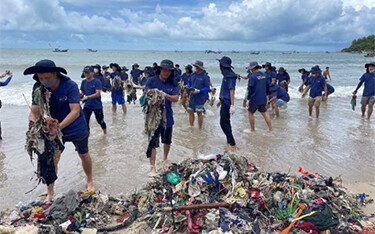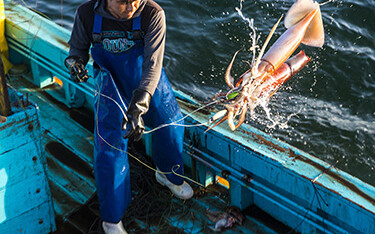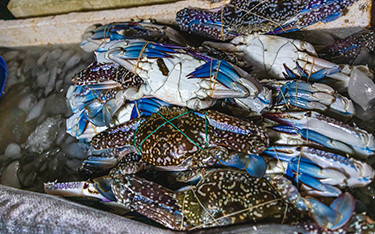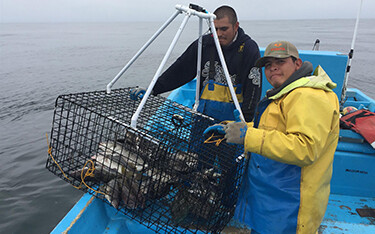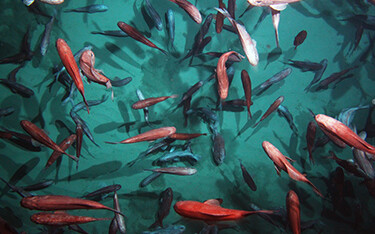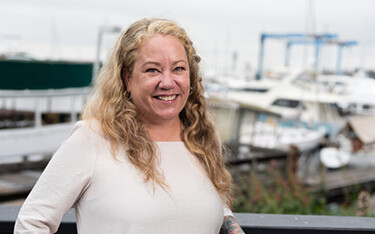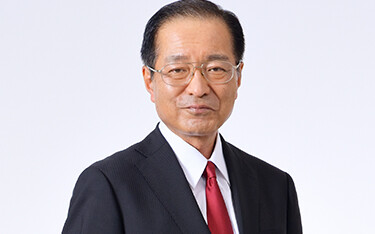Seafood Business for Ocean Stewardship (SeaBOS), a precompetitive collaboration between nine of the largest seafood companies in the world that aims to achieve sustainable transformation within the industry, released its first impact report providing a transparent review of collective action taken by its member companies.
SeaBOS members – Maruha Nichiro, Cargill, Nissui, Thai Union, Dongwon, Skretting, Cermaq, Kyokuyo, and Charoen Pokphand
… Read MoreGlobal fisheries often require assistance from third parties to ensure their operations meet the standards needed to attain certifications and other beneficial credentials.
Assistance sometimes comes in the form of direct investment, but fisheries more often achieve long-term success when that help involves long-lasting oversight and guidance, such as in the form of fishery improvement projects (FIPs), which have backed small fisheries in
… Read MoreTwo new reports indicate that blue swimming crab stocks in Indonesia are declining in many areas and that social issues remain a concern for the health of fishing communities and the stability of supply chains, even though there are positive economic indicators toward better management and governance of the stock.
In 2022, Indonesia’s crab exports brought in over USD 450 million (EUR 420 million), according to Indonesia’s
… Read MoreThe Marine Stewardship Council’s updated fisheries standard includes new requirements for preventing the loss of fishing equipment, such as nets and lines, and more stringent monitoring of the impact of lost gear, also known as “ghost gear.”
In a peer-reviewed paper led by the MSC, a team of scientists including Victor Restrepo, the vice president of the International Seafood Sustainability Foundation, has documented the
… Read MoreFuture of Fish, an international nonprofit working closely with seafood supply chains, aims to identify and remove barriers toward achieving a more sustainable seafood industry. The organization has adapted a global approach and applied consistent principles to engage with individual fisheries.
In an interview with SeafoodSource, Future of Fish Executive Director Peter Battisti discussed how his company effectively engages with nonindustrial
… Read MoreAs the seafood industry, conservation organizations, and community advocates work together to support healthy fisheries and stable communities, the laboratories for designing new approaches or adapting existing models are small fishing villages throughout the world, like El Rosario, Mexico.
El Rosario is a community of approximately 2,000 people in Baja California, Mexico, that is “dominated by fishing and agriculture,” said
… Read MoreHistory seems to be repeating itself within New Zealand’s orange roughy fisheries, as new science calls the species’ management into question.
In the 1980s, stocks of the species in the country suffered from overfishing due to faulty assumptions about its growth rate and productivity. Better science and management resulted in a rebound of the species, with three New Zealand orange roughy fisheries eventually receiving Marine
… Read MoreJohn Goodlad believes the seafood industry is undervaluing the story of seafood and its ability to differentiate seafood in the broader protein market.
Goodlad is an advisor to the Sustainable Oceans Fund and the Fishmongers company and is chair of Fisheries Innovation Scotland. Previously, Goodlad worked at The Prince of Wales Sustainability Unit, Shetland Catch Limited, the Scottish Pelagic Advisory Group, and was the owner and managing
… Read MoreEfforts to increase gender equality in the seafood industry received a boost with a two-year, USD 350,000 (EUR 326,000) grant to the Portland, Oregon, U.S.A.-based nonprofit Seafood and Gender Equality (SAGE).
Founded in 2020, the organization promotes gender equality in the global seafood sector with a goal of building a more resilient industry, thriving communities, and abundant resources for future generations.
The award from the David and
… Read MoreJapan’s seafood industry is rapidly changing. For example, a 2020 fisheries law significantly changed guidance around effective practices in fisheries management. Japanese producers and harvesters, meanwhile, are increasingly adopting measures to provide assurances of responsible supply geared both toward the domestic market – where consumer interest in sustainable seafood is growing – and the export market, with the latter
… Read More

